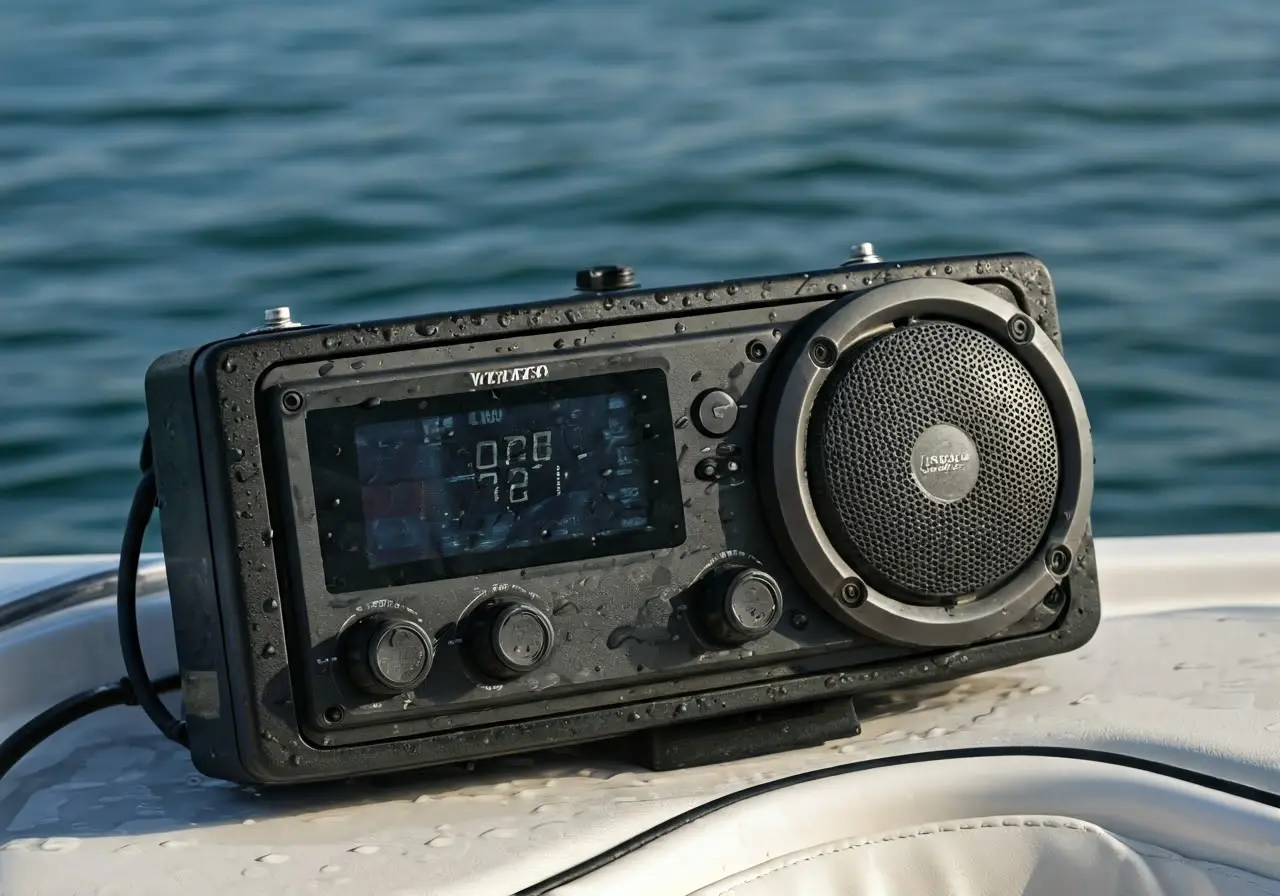Can Marine Audio Systems Withstand Saltwater Environments?
Navigating the challenges of marine environments can be tough, especially when it comes to ensuring your audio system is up to the task. This FAQ will explore how marine audio systems are designed to withstand the harsh conditions of saltwater environments.
What Makes Marine Audio Systems Different?
Marine audio systems are specially designed to endure the moisture, salt, and temperature fluctuations found in marine environments.
Unlike traditional audio equipment, marine audio systems incorporate unique features to ensure durability and superior sound quality. They are built with materials that repel moisture and resist corrosion, preventing the rust and damage typically caused by exposure to salty air and water. This construction allows the systems to maintain performance amidst the challenging conditions often encountered at sea.
The best marine audio systems, like those offered by Rockford Fosgate, come equipped with advanced technologies that enhance their functionality, such as Element Ready™ materials and waterproof designs. These features combine to offer a sound experience that is both powerful and resilient, making them a wise investment for any boat owner.
How Do Marine Audio Systems Resist Corrosion?
These systems use corrosion-resistant materials such as stainless steel and polymers to prevent rust and breakdown due to salt exposure.
Corrosion resistance is integral to the lifespan of marine audio systems. Brands like Rockford Fosgate take extra precautions by using materials that are not only resistant to rust but also capable of withstanding prolonged exposure to UV rays. This design feature is vital for preserving the sound quality and physical integrity of the audio components.
Additionally, marine audio systems often include sealed enclosures and waterproof coatings. These elements act as barriers, keeping salt particles and moisture from infiltrating the equipment’s sensitive internal components. By implementing such measures, marine audio systems can consistently deliver exceptional audio performance in marine environments.
Are Marine Audio Systems Waterproof?
Many marine audio components are designed to be waterproof or water-resistant, helping them function properly even when exposed to splashes or rain.
Waterproofing is a critical feature for any marine audio system, addressing the regular exposure to water expected on any seafaring vessel. Whether battling splashes from waves or bursts of rain, these systems are protected to ensure consistent playability without interruption. Marine speakers, for instance, are equipped with seals and waterproof covers that keep moisture out while still delivering crystal-clear sound.
The effectiveness of waterproof marine audio technology allows these systems to be versatile enough for other outdoor activities beyond boating, such as camping, tailgating, or even poolside parties. Thanks to their water and weather-resistant attributes, marine audio systems can thrive in a variety of environments.
What Features Should You Look For?
Key features include UV resistance, sealed connections, and marine-grade wiring to withstand the elements.
Selecting the right marine audio system involves understanding the critical features that ensure longevity and efficiency. UV resistance is imperative because it prevents the fading and degradation of components caused by long-term sun exposure. Additionally, sealed connections are vital in stopping water seepage into electronic parts, maintaining system integrity.
Look for systems that offer durable marine-grade wiring capable of resisting corrosion and wear. This not only safeguards the system’s electrical components but also ensures consistent sound output. With the right features, such as those found in Rockford Fosgate systems, you can confidently build a high-performing marine audio setup tailored to your needs.
How Do You Maintain a Marine Audio System?
Regular maintenance, such as cleaning and inspecting your system, helps ensure longevity and performance in salty conditions.
Maintenance of marine audio systems involves periodic checks and cleaning to preserve their functionality. Ensuring the surface is free from salt deposits and moisture can prevent corrosion over time. It’s also important to regularly inspect all connections and wiring for any signs of wear or damage, allowing for timely repairs or replacements.
Proper maintenance practices extend beyond routine checks. Using marine audio-specific cleaning products and tools can aid in retaining optimal performance. By proactively caring for your marine audio system, you secure its longevity, ensuring it continues to provide pristine sound quality for your on-the-water adventures.
Conclusion: Enjoy Your Tunes at Sea
In conclusion, a well-chosen marine audio system can enhance your seafaring experience without succumbing to the harsh saltwater elements. By understanding the components and their protection against corrosion, you can enjoy music and audio at sea worry-free.
























































